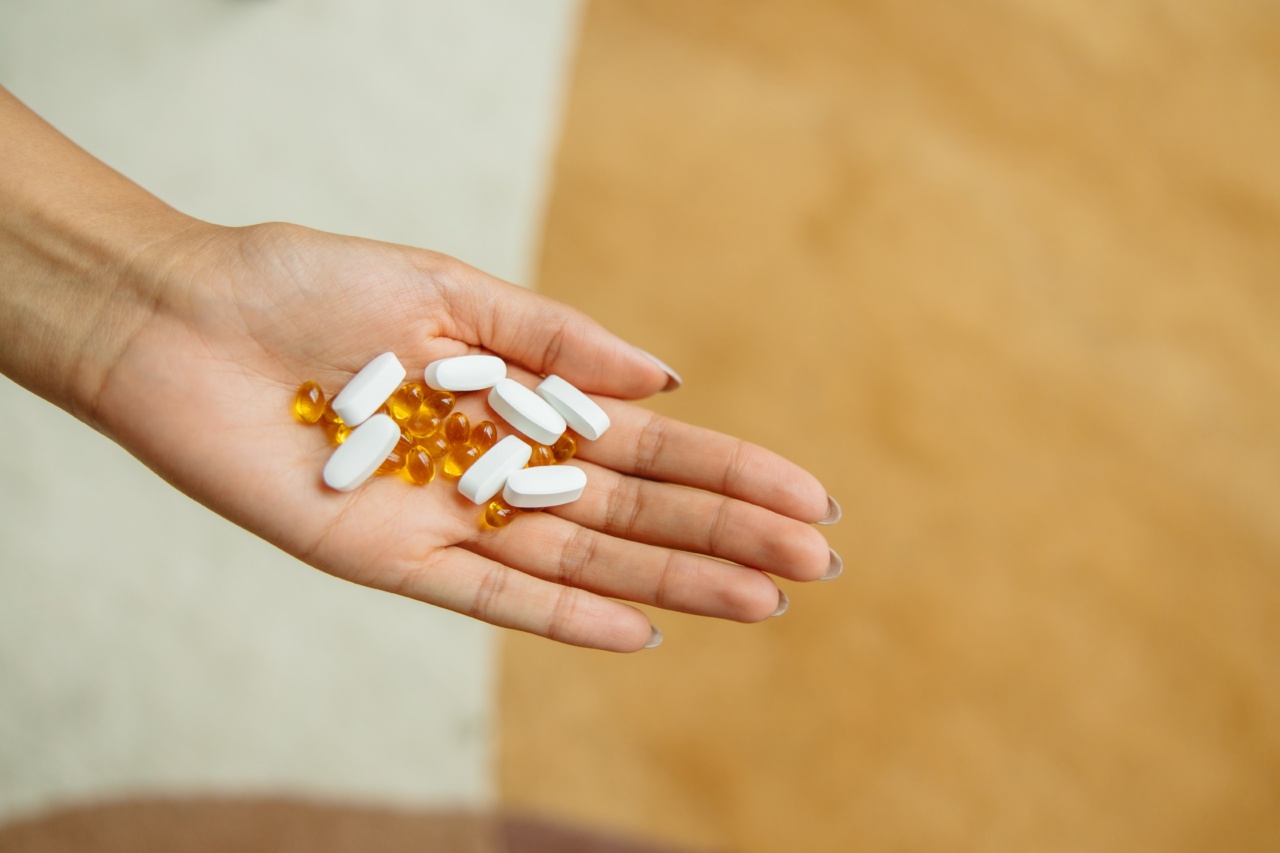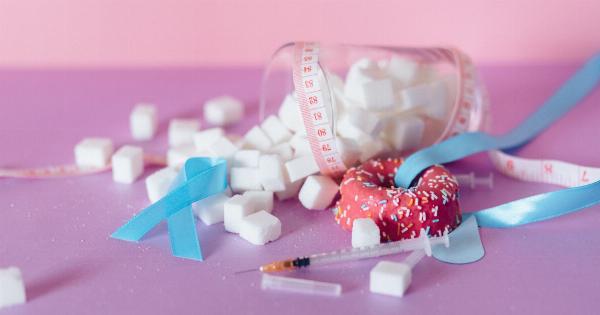Sexual health is an important aspect of overall well-being, and any issues related to it can greatly impact a person’s quality of life.
Pain during sexual intercourse, also known as dyspareunia, is a common complaint among men and women of all ages. While there can be various causes for this discomfort, one often overlooked factor is the impact of one’s diet.
The Gut-Brain Connection
Believe it or not, there is a strong connection between the gut and the brain. This connection, known as the gut-brain axis, plays a crucial role in our overall health, including our sexual health.
A healthy gut microbiome is essential for proper digestion, nutrient absorption, and hormone regulation. When the balance of gut bacteria is disrupted due to a poor diet, it can affect our overall well-being, including our sexual function.
Processed Food and Inflammation
One of the biggest culprits behind many health problems, including painful sex, is the consumption of processed foods. These foods are often high in refined carbohydrates, unhealthy fats, and additives.
They lack essential nutrients and can lead to chronic inflammation in the body. Chronic inflammation can cause pain and discomfort, making sexual intercourse a painful experience.
Sugar and Hormonal Imbalance
Sugar, especially in excess, can wreak havoc on our hormones. It can lead to insulin resistance, weight gain, and hormonal imbalances. Estrogen, a key hormone for female sexual health, can be affected by insulin resistance.
When estrogen levels are imbalanced, it can result in vaginal dryness, decreased libido, and pain during intercourse. Similarly, imbalances in testosterone, the primary male sex hormone, can also contribute to sexual dysfunction.
Omega-3 Fatty Acids for Sexual Health
Omega-3 fatty acids are essential for maintaining good health, and they also play a role in sexual function. These healthy fats help promote blood flow, reduce inflammation, and support hormone production.
Including omega-3-rich foods such as fatty fish, walnuts, and flaxseeds in your diet can potentially improve sexual health and reduce any pain or discomfort experienced during sex.
Healthy Diet for Better Sexual Health
A well-balanced and nutritious diet is crucial for optimal sexual health. Here are some dietary tips that can help improve your sexual well-being:.
1. Eat Plenty of Fruits and Vegetables
Fruits and vegetables are rich in vitamins, minerals, and antioxidants that support overall health. They provide essential nutrients that can enhance blood flow, improve hormonal balance, and maintain healthy tissues.
Include a variety of colorful fruits and vegetables in your daily meals to reap their benefits for sexual health.
2. Choose Whole Grains
Whole grains like quinoa, brown rice, and whole wheat bread contain fiber and important nutrients that support heart health. A healthy heart is crucial for proper blood circulation, including to the genital area.
Opt for whole grain alternatives over refined grains to maximize the nutritional value of your meals.
3. Include Lean Protein Sources
Protein is an essential macronutrient that aids in tissue repair and hormone production. Include lean protein sources such as chicken, fish, tofu, beans, and lentils in your diet to support sexual health.
Protein also helps maintain healthy muscle mass, which can enhance sexual performance.
4. Consume Healthy Fats
Healthy fats, such as those found in avocados, nuts, seeds, and olive oil, are crucial for hormonal balance and overall well-being.
Avoid unhealthy trans fats found in processed and fried foods, as they can lead to inflammation and negatively impact sexual health.
5. Stay Hydrated
Proper hydration is key for maintaining healthy bodily functions, including sexual health.
Ensure you drink an adequate amount of water throughout the day to support the production of natural lubrication, reduce vaginal dryness, and support overall sexual comfort.
6. Limit Alcohol and Caffeine
Excessive alcohol consumption can negatively affect sexual function and increase the risk of sexual dysfunction. Caffeine, when consumed in excess, can also contribute to anxiety and jitters that may interfere with sexual performance.
Moderation is key when it comes to these substances.
7. Seek Professional Help
If you are experiencing persistent pain during sexual intercourse, it is essential to consult a healthcare professional. They can help identify the underlying causes and provide appropriate guidance or treatment.
It may involve dietary changes, lifestyle modifications, or medical interventions, depending on the specific situation.
Remember, a healthy diet and lifestyle provide a strong foundation for overall well-being, including sexual health.
By making conscious choices and nourishing your body with the right foods, you can potentially reduce pain during sex and enhance your overall sexual experience.




























